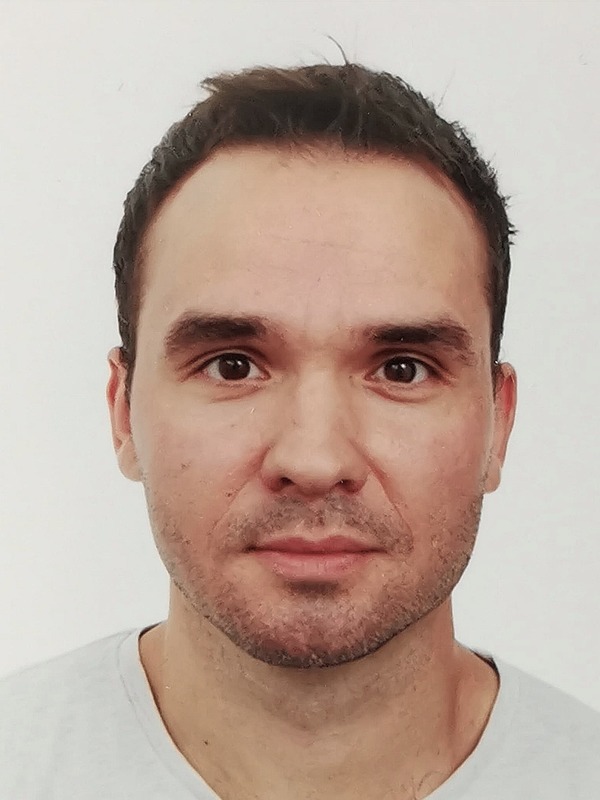Odjel za tehniku u medicini i biologiji
Hrvatsko društvo za medicinsku i biološku tehniku (HDMBT) i Odjel za tehniku u medicini i biologiji (EMB18) Hrvatske sekcije IEEE pozivaju vas na predavanje
"Biomedical Big Data Analytics for Patient-Centric and Outcome-Driven Health Care"
koje će održati prof. May D. Wang, Ph.D., IEEE-EMBS Distinguished Lecturer, Georgia Institute of Technology, USA.
Predavanje će se održati u četvrtak, 6. studenoga 2014. u 15:00 sati u Sivoj vijećnici. Predviđeno trajanje predavanja je 45 minuta. Životopis predavačice i sažetak predavanja nalaze se u nastavku obavijesti.
May D. Wang, Ph.D. is an Associate Professor in the Joint Department of Biomedical Engineering, School of Electrical and Computer Engineering, Winship Institute, Institute for Bioengineering and Biosciences, and Institute for People and Technology at Georgia Institute of Technology and Emory University, USA. She is a Kavli Fellow, a Georgia Research Alliance Distinguished Cancer Scholar, Biocomputing and Bioinformatics Core Director in Emory-Georgia-Tech Cancer Nanotechnology Center, and Co-Director of Georgia-Tech Center of Bio-Imaging Mass Spectrometry.
Prof. Wang’s research is in Biomedical Big Data analytics with a focus on Biomedical and Health Informatics (BHI) for Personalized and Predictive Health. Her research includes high throughput NGS and -omic data mining to identify clinical biomarkers, bionanoinformatics, pathological imaging informatics to assist clinical diagnosis, critical and chronic care health informatics for evidence-based decision making, and predictive systems modeling to improve health outcome. Prof. Wang published 160+ peer-reviewed articles in BHI. She is the corresponding/co-corresponding author for articles published in Journal of American Medical Informatics Association, Journal of Biomedical and Health Informatics, Briefings in Bioinformatics, BMC Bioinformatics, Journal of Pathology Informatics, IEEE/ACM Transactions on Computational Biology and Bioinformatics, Proceedings of The IEEE, IEEE Transactions on Information Technology in Biomedicine, BMC Medical Imaging, Annals of BME, Trends in Biotechnology, Nature Protocols, Proceedings of National Academy of Sciences, Annual Review of Medicine, Circulation Genetics, and Nanomedicine etc. She has led RNA-data analysis investigation within FDA-led Sequencing Consortium (SEQC). Her past bioinformatics systems were certified by NIH/National Cancer Informatics Program as silver-level compatible (e.g. omniBiomarker). Dr. Wang has devoted to training young generation of data scientists and engineers, and she received Georgia-Tech’s Outstanding Faculty Mentor for Undergraduate Research Award in 2005.
Currently, Prof. Wang serves as Senior Editor for IEEE Journal of Biomedical and Health Informatics (J-BHI), Associate Editor for IEEE Transactions on Biomedical Engineering (TBME), and Emerging Area Editor for Proceedings of National Academy of Science (PNAS). She also serves as IEEE EMBS Biomedical and Health Informatics Technical Committee Chair, and IEEE EMBS Special Topic Conference on Biomedical and Health Informatics Steering Committee Chair. She is an IEEE-EMBS 2014-2015 Distinguished Lecturer, and has recently been elected as an EMBS Administrative Committee Officer representing North America.
Biomedical Big Data Analytics for Patient-Centric and Outcome-Driven Health Care
Rapid advancements in biotechnologies such as –omic (genomics, proteomics, metabolomics, lipidomics etc.), next generation sequencing, bio-nanotechnologies, molecular imaging, and mobile sensors etc. accelerate the data explosion in biomedicine and health wellness. Multiple nations around the world have been seeking novel effective ways to make sense of “big data” for evidence-based, outcome-driven, and affordable 5P (Patient-centric, Predictive, Preventive, Personalized, and Precise) healthcare. I conduct multi-modal and multi-scale (i.e. molecular, cellular, whole body, individual, and population) biomedical data analytics research for discovery, development, and delivery, including translational bioinformatics in biomarker discovery for personalized care; imaging informatics in histopathology for clinical diagnosis decision support; bionanoinformatics for minimally-invasive image-guided surgery; critical care informatics in ICU for real-time evidence-based decision making; and chronic care informatics for patient-centric health.
In this talk, first, I will highlight major challenges in biomedical and health informatics pipeline consisting of data quality control, information feature extraction, advanced knowledge modeling, decision making, and proper action taking through feedback. Second, I will present the methodology research in (i) data integrity and integration; (ii) case-based reasoning for individualized care; and (iii) streaming data analytics for real-time decision support using a few mobile health case studies (e.g. Sickle Cell Disease, asthma, pain management, rehabilitation, diabetes etc.). Last, there is big shortage of data scientists and engineers who are capable of handling Big Data. In addition, there is an urgent need to educate healthcare stakeholders (i.e. patients, physicians, payers, and hospitals) how to tackle the grant challenge together. I will discuss efforts such as patient-centric educational intervention, community-based crowd sourcing, and Biomedical Data Analytics MOOC development.
Our research has been supported by NIH, NSF, Georgia Research Alliance, Georgia Cancer Coalition, Emory-Georgia Tech Cancer Nanotechnology Center, Children’s Health Care of Atlanta, Atlanta Clinical and Translational Science Institute, Microsoft Research and HP.


